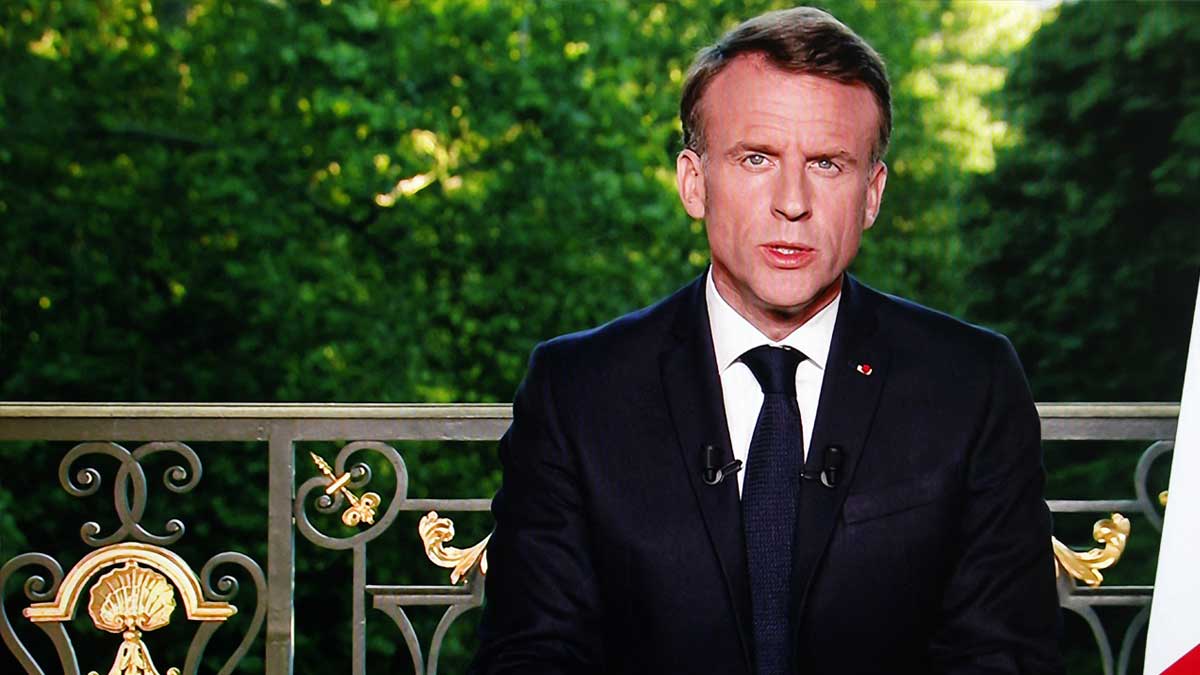- Home
- Billionaires
- Investing Newsletters
- 193CC 1000
- Article Layout 2
- Article Layout 3
- Article Layout 4
- Article Layout 5
- Article Layout 6
- Article Layout 7
- Article Layout 8
- Article Layout 9
- Article Layout 10
- Article Layout 11
- Article Layout 12
- Article Layout 13
- Article Layout 14
- Article Sidebar
- Post Format
- pages
- Archive Layouts
- Post Gallery
- Post Video Background
- Post Review
- Sponsored Post
- Leadership
- Business
- Money
- Small Business
- Innovation
- Shop
Recent Posts
France Grapples with Political Uncertainty as UK Stabilizes

As holidaymakers flock to France, enjoying the sun-soaked pleasures of Aix-en-Provence, the political scene remains anything but leisurely. Amidst the picturesque setting, the annual ‘Rencontres Économiques’ is drawing attention. This prestigious event is a gathering of France’s political and economic elite, akin to Roland Garros for economists. Here, the French are not only basking in the sun but also engaging in serious discussions about global economic and political issues, with a touch of irony as I address them on democracy during these turbulent times.
The atmosphere, though idyllic, is overshadowed by a palpable sense of unease. The second round of the French elections on Sunday, July 7th, is shaping up to be a critical juncture, with an air of rupture hanging over the proceedings. It’s challenging to foresee a positive outcome for France in the immediate future. The discussions at the Rencontres highlighted two major concerns: the manipulation of social media by external actors like Russia and a growing frustration with the notion that “America innovates, China copies, and Europe regulates.”
In this week’s Irish Times, I explored the ramifications of Emmanuel Macron’s political downfall. It seems that Macron’s influence as a major political figure in Europe is waning. His status as a ‘lame duck’ president diminishes his role in EU politics, potentially boosting figures like Donald Tusk, Ursula von der Leyen, Kaja Kallas, and Giorgia Meloni. Additionally, Germany may struggle to cooperate with a potential Rassemblement National (RN) government, altering the dynamics of European politics.
Domestically, Macron has twice reshaped the French political landscape. Initially, he invigorated a new center but then dismantled it, leaving France teetering on the brink of an illiberal democracy. The current political scene is polarized between the far-left and far-right, with the Rassemblement National emerging as the largest party in the Assemblée, nearing a majority. Meanwhile, the far-left, struggling to provide viable solutions for France’s economic and societal challenges, remains fragmented.
The likely outcome of this Sunday’s election could be a technocratic government amid a constitutional crisis. Unlike Italy, which has successfully managed technocratic administrations (with notable figures like Mario Monti and Enrico Letta), France has not yet faced such a scenario. The French media is increasingly featuring constitutional experts speculating on how the constitution might accommodate the formation of a technocratic government and the role of the president in this unprecedented crisis.
The French constitution was designed to support majority governments, not to facilitate the creation of caretaker administrations. As such, forming a technocratic government will be an experimental process, with significant behind-the-scenes debate about who might best lead such a government. While the formal process is led by the president, Macron’s weakened position complicates matters. The country faces a challenging year ahead, with potential unrest and economic instability on the horizon.
In contrast, the UK is experiencing a period of stability following a significant electoral shift. Thursday’s election marked the end of Tory dominance, led to a resurgence in Liberal Democrat support, and endorsed the Scottish Nationalists and Northern Ireland unionists. Notably, the election resulted in a rise in female MPs, now constituting 41% of Parliament. Despite Labour receiving only a third of the vote, Keir Starmer holds substantial political capital.
Starmer, often perceived as steady but unremarkable, faces a pivotal task in the upcoming NATO summit (July 9-11). He is expected to reaffirm the UK’s commitment to its military and security objectives, particularly regarding Ukraine. Compared to his predecessors, Starmer may shift the focus in Israel/Palestine towards finding a negotiated peace. He will also benefit from being one of the most popular NATO leaders with a fresh start.
On the foreign policy front, Starmer is likely to emphasize improved relations with the EU and Ireland, though significant trade initiatives may be premature. Early policy announcements may focus on reforming public life, including the House of Lords and addressing corruption. A bold move might be a visit to France, signaling a willingness to engage with its current political turbulence.
In summary, while the UK is turning a new page with a shift in leadership and political stability, France faces a period of political chaos and uncertainty. The contrast highlights the diverse challenges each country is navigating as they look toward the future.
Recent Posts
Categories
- 193cc Digital Assets2
- 5G1
- Aerospace & Defense44
- AI32
- Arts3
- Banking & Insurance11
- Big Data3
- Billionaires230
- Boats & Planes1
- Business309
- Careers13
- Cars & Bikes66
- CEO Network1
- CFO Network17
- CHRO Network1
- CIO Network1
- Cloud10
- CMO Network18
- Commercial Real Estate7
- Consultant1
- Consumer Tech157
- CxO1
- Cybersecurity54
- Dining1
- Diversity, Equity & Inclusion4
- Education7
- Energy8
- Enterprise Tech29
- Events11
- Fintech1
- Food & Drink2
- Franchises1
- Freelance1
- Future Of Work2
- Games135
- GIG1
- Healthcare75
- Hollywood & Entertainment158
- Houses1
- Innovation37
- Investing2
- Investing Newsletters4
- Leadership65
- Lifestyle10
- Manufacturing1
- Markets20
- Media184
- Mobile phone1
- Money13
- Personal Finance2
- Policy544
- Real Estate1
- Research6
- Retail1
- Retirement1
- Small Business1
- SportsMoney24
- Style & Beauty1
- Success Income1
- Taxes2
- Travel10
- Uncategorized6
- Vices1
- Watches & Jewelry2
- world's billionaires200
Related Articles
Musk and Ramaswamy Push $2 Trillion Federal Cuts via DOGE
Billionaires Elon Musk and Vivek Ramaswamy, co-leads of the Trump administration’s proposed...
By 193cc Agency CouncilNovember 23, 2024Alphabet Shares Fall 5% as DOJ Seeks Chrome Sale
Shares of Alphabet, the parent company of Google, dropped more than 5%...
By 193cc Agency CouncilNovember 22, 2024Carr’s FCC Nomination and Musk’s Potential Gains
President-elect Donald Trump has nominated Brendan Carr to lead the Federal Communications...
By 193cc Agency CouncilNovember 19, 2024Musk Joins Trump’s Call with Ukraine’s Zelensky
Billionaire Elon Musk played an unexpected role in a call between President-elect...
By 193cc Agency CouncilNovember 9, 2024















Leave a comment